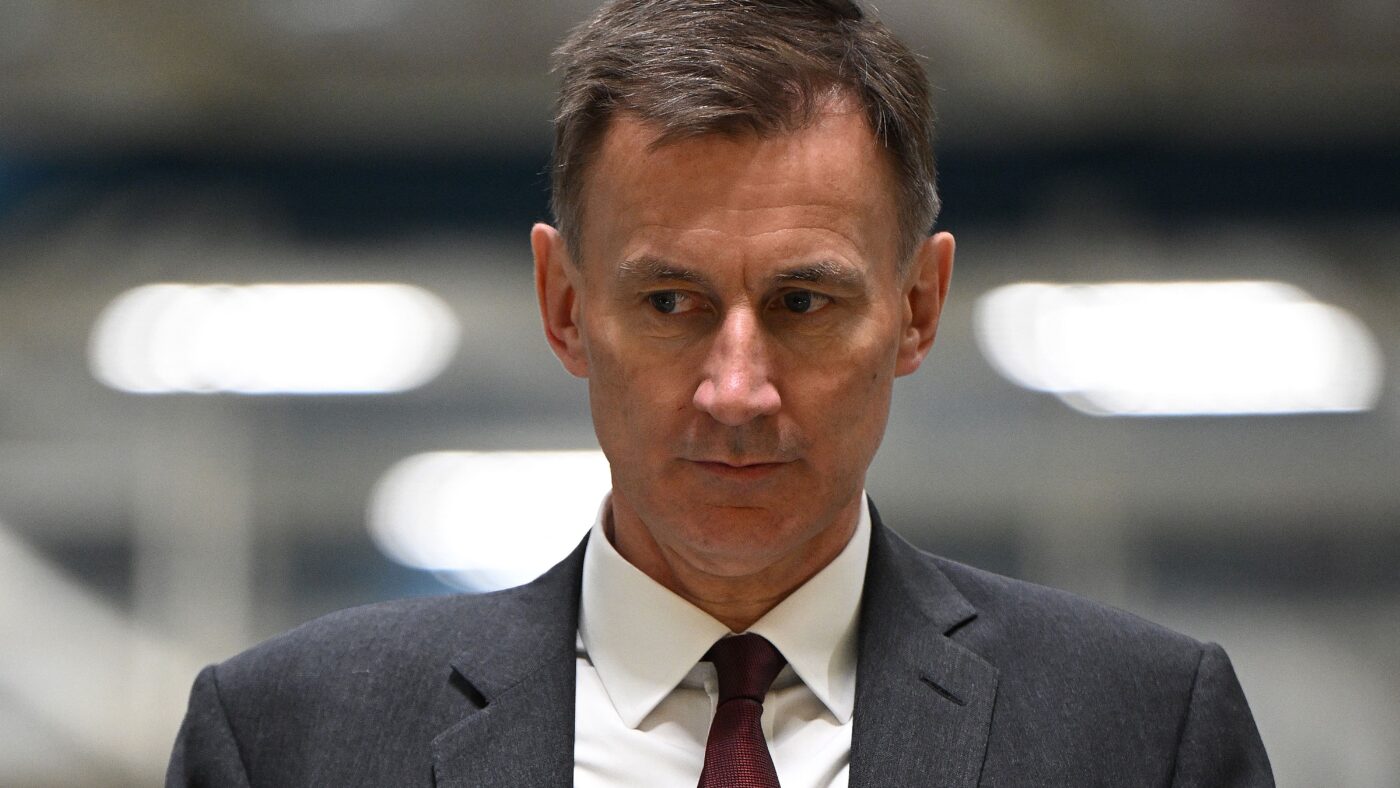If I received a call from my bank telling me that I was £10,000 overdrawn, then the next day they called me again to say that they had recalculated and in fact I was only £9000 overdrawn would I leap in the air, tell myself I have just received a £1000 windfall and start dreaming up ways I could spend it? I don’t think so, yet that is what some are encouraging Jeremy Hunt to believe.
In November, the Office for Budget Responsibility was predicting that borrowing up to January 31 would be £105.8bn. As it happens, it has come out slightly lower, at £96.6bn. And the result? Excitement that the Chancellor suddenly has £9.2bn available for tax cuts. A 1% drop in the basic rate of income tax to 19 pence – which would cost the Exchequer £7bn – has been suggested.
The backdrop to this week’s slightly better than expected borrowing figures is that the Government is still running a thumping big overdraft. No UK government has succeeded in balancing the books in 22 years, and as result we now have accumulated public debt that is equivalent to 100% of GDP. Save for a couple of quarters over the past couple of years when it was a smidgeon above 100%, this is higher than at any time since the early 1960s. Between the late 1970s – yes, the time of Denis Healey’s infamous visit to the IMF – and the financial crisis of 2008/09 it stood at below 50%. In 2010, when David Cameron became Prime Minister and focussed his Government on getting borrowing under control, it was 70%. Yet the idea of fiscal discipline seems to have gone out of the window since then. The Conservatives are no longer talking about spending cuts, only tax cuts. Consequently, it will only take one more crisis to render the government’s financial position hopeless.
Like most people, I would love my taxes to be lower. But I would be far more impressed if, instead of offering me a pre-election bribe, Jeremy Hunt would come up with a firm plan to balance the public books and, unlike George Osborne, stick to it. The tax burden is only one reason that the Tories have become so unpopular. Their far more fundamental problem is that they have lost the reputation they once had for fiscal prudence. They have allowed themselves to be bullied out of it by charges of ‘austerity’. No, it is not ‘austerity’ when you carry on spending more than you are earning.
It is spending cuts, not tax cuts, which I would like to see in the Budget. But I think Hunt very much could give us an indication of the prize he will be able to offer when public spending really is under control. In the Autumn Statement, he reduced employees’ National Insurance contributions (NICs) by 2%. The self-employed got a cut, too, of 1% plus the abolition of weekly class 2 contributions. When there is money available for tax cuts this is absolutely the place to begin. After all, the Conservatives rightly used to complain when Gordon Brown jacked up NICs, they are a ‘tax on jobs’ in that they are not paid on investment or any other form of income. In the 1970s, Labour used to have a fiscal regime which took a punitive approach to earned income. Now, we have a system very much the opposite, where, perversely, we treat people more harshly if they earn their living than if they are living off a family trust fund.
What is clear is that the Conservatives’ are going to struggle to regain the public’s trust if they only address half of what’s causing our economic decline. So, if I were Chancellor, I would make some spending cuts, enough to fund a further 1% fall in NICs. That would mean just over £4 billion having to be trimmed off government budgets – which is surely achievable without inflicting pain on widows and orphans. In an ideal world, it would be welcome to see the Chancellor set the direction of travel towards phasing out NICs altogether over the next Parliament, so long as the public finances improved. By 2029 the jobs tax would be history. Would Labour match the promise? I’m not sure, but if they didn’t it would suddenly be the Conservatives, not them, who could rightly claim to be the party of labour.
Click here to subscribe to our daily briefing – the best pieces from CapX and across the web.
CapX depends on the generosity of its readers. If you value what we do, please consider making a donation.


